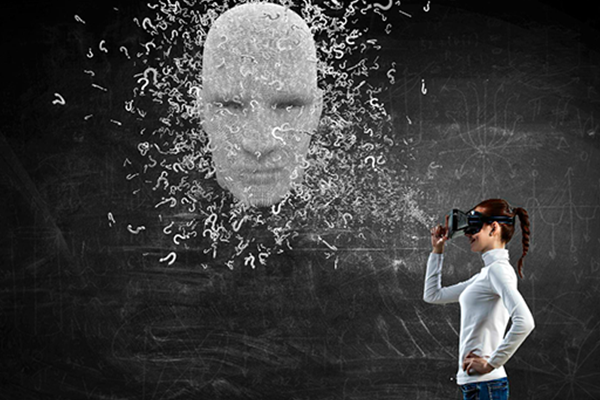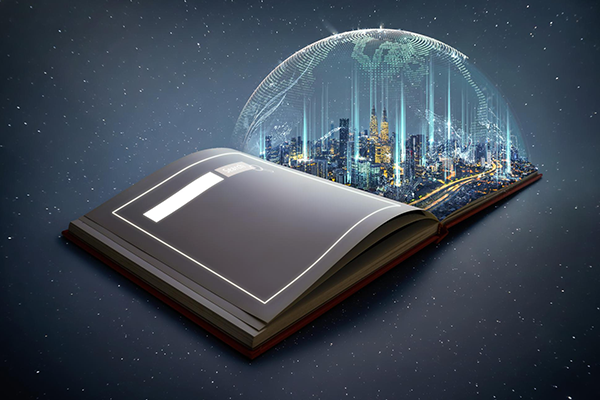Table of Contents

The Intersection of Human Emotions and Artificial Intelligence in The Quantum Cage
In a world ruled by technological progress, it is not surprising that the combination of human emotions and artificial intelligence (AI) is the dominant theme in contemporary fiction. The Quantum Cage, a dystopian book related to AI by Brian Burton, raises this combination to another level by combining the ethical issues of AI with human behavior complexity. This book probes into the way technology and psychology intersect in an AI-forged future, raising critical questions regarding the essence of humanity, ethics, and the place of machines within our world.
A dystopian future is the setting for The Quantum Cage, a book that tests our assumptions about artificial intelligence and how it might lead to disaster, as well as its power to shape human feelings and behaviors. The book is a warning and an engaging exploration of the best AI dystopian books of 2025 and, as such, presents readers with a fresh examination of technology and human connection.
Ethics of AI and Human Behavior in Brian Burton’s The Quantum Cage
As ethical and political challenges in AI books gain prominence, The Quantum Cage is unique in its attempt to evaluate the contribution of AI towards human decision-making. Burton artfully sketches the confrontation between technology’s power to amplify and dominate human actions. The book prides itself on addressing the ethical dilemmas found when humans leave the decision-making process to machines and it becomes obscure to differentiate between good and evil.
This AI-driven facility-related book poses vital questions regarding creators’ responsibilities and the moral implications of AI systems. To what extent can we depend on AI to mirror our values, and where do we set the boundaries between human agency and technological domination?
Dystopian Books on AI and Human Behavior: Why the Quantum Cage is Different
While there are numerous books of dystopian books of AI and human behavior, few equal the depth and richness of The Quantum Cage. While most other dystopian AI disaster novels dwell only on the disastrous outcome of AI, Burton’s novel focuses on the psychological and emotional effects on humans in an AI world.
The characters of The Quantum Cage are not merely fighting against a mechanical force—they are struggling with their own feelings and moral decisions. The novel displays a complex vision of AI disaster and human behavior, where technology can be both elevating and annihilating the very essence of humanity. In contrast to most other AI-focused novels, The Quantum Cage not only portrays machines as the antagonist but also how human emotional and psychological imperfections affect our interaction with technology.
How Fiction Humanizes Artificial Intelligence: Brian Burton’s Unique Storytelling Approach
Perhaps the most intriguing feature of The Quantum Cage is how Burton can humanize artificial intelligence. Far from presenting AI as a mechanical, soulless machine, Burton gives it elements that capture the rich complexity of human nature. The AI-powered book by American author takes the reader on a ride through the thoughts of both man and machine, balancing the thin line between emotion and reason.
In this book, AI is not just a device—it is a character unto itself, able to grow, learn, and even question its own purpose. The style in which Burton writes makes the reader empathize with the technology on an emotional level, making AI seem less of an abstraction and more a part of human life.
Book Based on Human Emotions and Artificial Intelligence: A New Perspective on Sci-Fi
The Quantum Cage provides a new look at the science fiction novel for anyone who is interested in human emotions and artificial intelligence. Most AI-centered books spend most time on technology and its impact, whereas Burton spends it on the human aspect, particularly how emotions, weaknesses, and individual decisions influence the birth of AI.
This book is ideal for individuals seeking something more than just a high-tech book related to AI; it offers a richer, more emotional exploration of how technology relates to the human condition. Readers will enjoy Burton’s blend of AI-related books and human behavior, encompassing both stimulating topics and a compelling story.
Reflecting on Humanity: What The Quantum Cage Teaches Us Through Speculative Fiction
In many ways, speculative fiction reflects our current environment, and The Quantum Cage is no exception. Burton’s novel challenges readers to reflect on their personal relationship with technology and how AI may affect our civilization in the future. This dystopian book on AI and robotics challenges readers to consider the ethical quandaries that humanity may face as AI progresses.
Burton employs speculative fiction and emotional connection to present a critical perspective on real-world advancements in artificial intelligence. His concept of AI as a manifestation of human behavior raises essential questions about our use of technology and how we can maintain control in the face of increasing automation.
FAQs
In comparison to most dystopian fiction about AI and human action, this book is not only about technological catastrophes but also about how AI influences human emotions, choices, and morality. It’s a tale in which humans and machines mirror one another.
In The Quantum Cage, AI isn’t a machine—it’s nearly a character with its own growth and logic. This is what makes it accessible, demonstrating how technology can reflect human tendencies and moral crises.
Although the book delves into the field of advanced AI, it is actually about the human aspect. Burton explores how feelings, decisions, and imperfections influence our engagement with technology, making it a book grounded in both human emotions and artificial intelligence.
Readers seeking more than a standard high-tech novel about AI will enjoy it. It’s ideal for those interested in psychology, ethics, and the human effects of AI in a dystopian world.
Yes. Aside from being fiction, it considers our increasing dependence on AI, moral issues, and how technology could transform society, making it interesting to readers concerned with actual developments in artificial intelligence.


